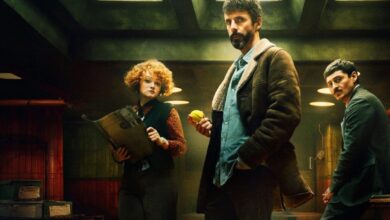Copenhagen Cowboy Review: Refn’s Noir Masterpiece, Between Neon and Mythology
Cast: Angela Bundalovic, Lola Corfixen, Zlatko Buric, Andreas Lykke Jørgensen, Jason Hendil-Forssell, Li Ii Zhang, Dragana Milutinovic
Creator: Nicolas Winding Refn
Streaming Platform: Netflix
Filmyhype.com Ratings: 4.5/5 (four and a half stars)
Three years after the launch of the Amazon miniseries Too Old to Die, Young, the visionary Danish director Nicolas Winding Refn returns to the world of television, creating the TV series Copenhagen Cowboy for Netflix. As anticipated in recent weeks, the author of Only God Forgives, Valhalla Rising and The Neon Demon had announced a return to his origins, with a drastic departure from Hollywood and the choice to give life to an entirely Danish production. The result is a highly experimental work which, even more than the already very original Too Old to Die, Young, explores the borderland between film and television series, in an attempt to capture the best of both languages. While waiting for the launch of the series, scheduled for December 2022, here’s a preview of our Copenhagen Cowboy review.
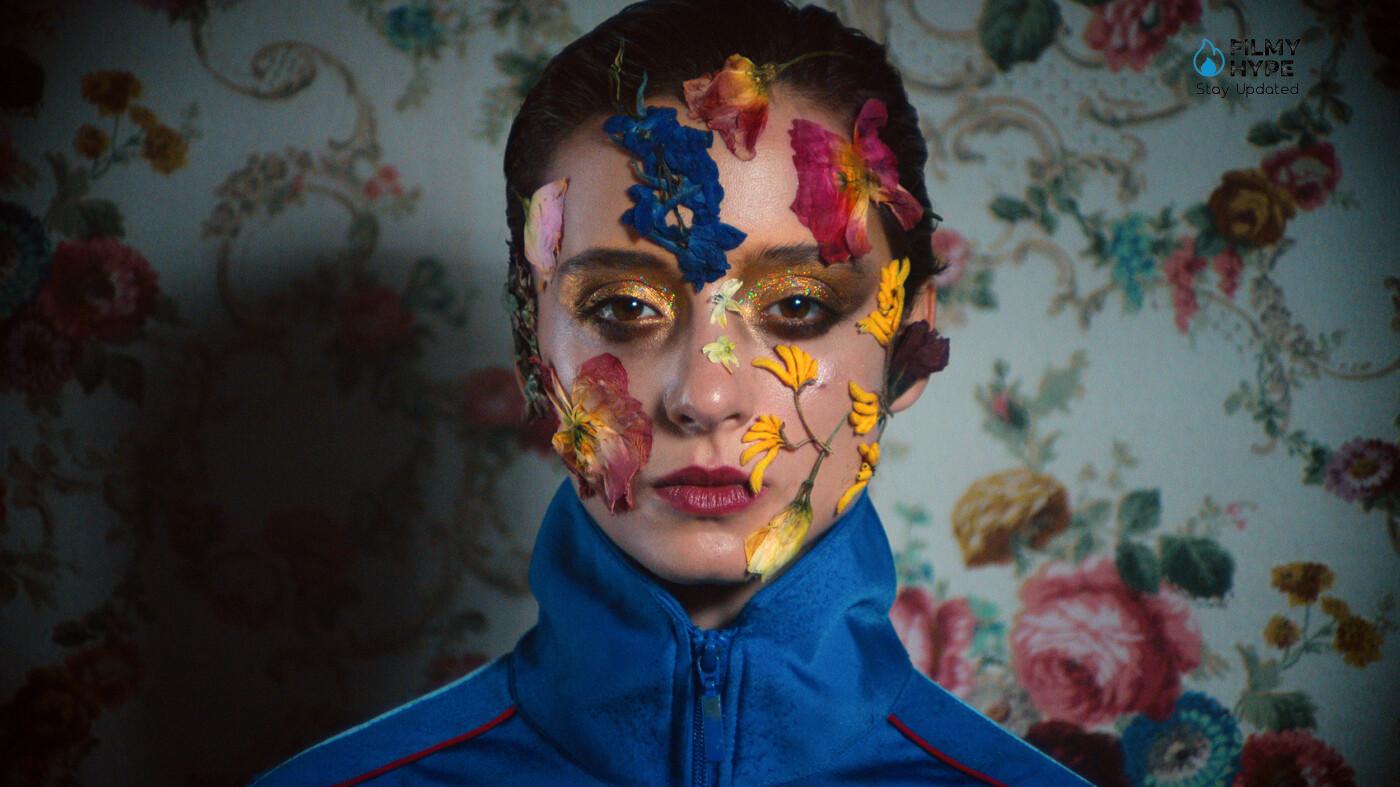
Some directors are not afraid of seriality or of new ways of using streaming services. The potential for perennial accessibility of these platforms seems to have given new life to the creative flair of Nicholas Winding Refn – who has never really died out – who returns, after Too Old To Die, Young, to approach a new idea of audiovisual partnership: the one with Netflix, who will distribute his new series Copenhagen Cowboy and the one with a slice of the public that continues to follow the director and eagerly awaited his arrival at the Venice Film Festival 2022.
Copenhagen Cowboy Review: The Story Plot
The plot of Copenhagen Cowboy follows the young and enigmatic heroine Miu. After a life of servitude and on the verge of a new beginning, Miu (Angela Bundalovic) traverses the unnerving landscape of Copenhagen’s criminal underworld. Seeking justice and vengeance, she meets her nemesis, Rakel (Lola Corfixen), and they embark on an odyssey through the natural and the supernatural. The past ends up transforming and defining their future, as the two women discover that they are not alone, that they are many.
With Copenhagen Cowboy, Refn returns home to his native Denmark, but he does so starting from the slums, or rather, a paradoxically mythicized reworking of them. Drug dealers, murderers and arms dealers innervate the Danish capital with shocking violence, which clashes with the elegance and supernatural inspiration inherent in the young girl’s prisoners of this infernal labyrinth. This setting in which all that is illicit finds concreteness is the perfect basis for a plot in which ambition, greed, and deceit merge to deliver us an ultra-modern Shakespearean drama. After all, if Shakespeare were writing today, he would not be writing about royal families, but about crimes, said Refnat at the press conference.
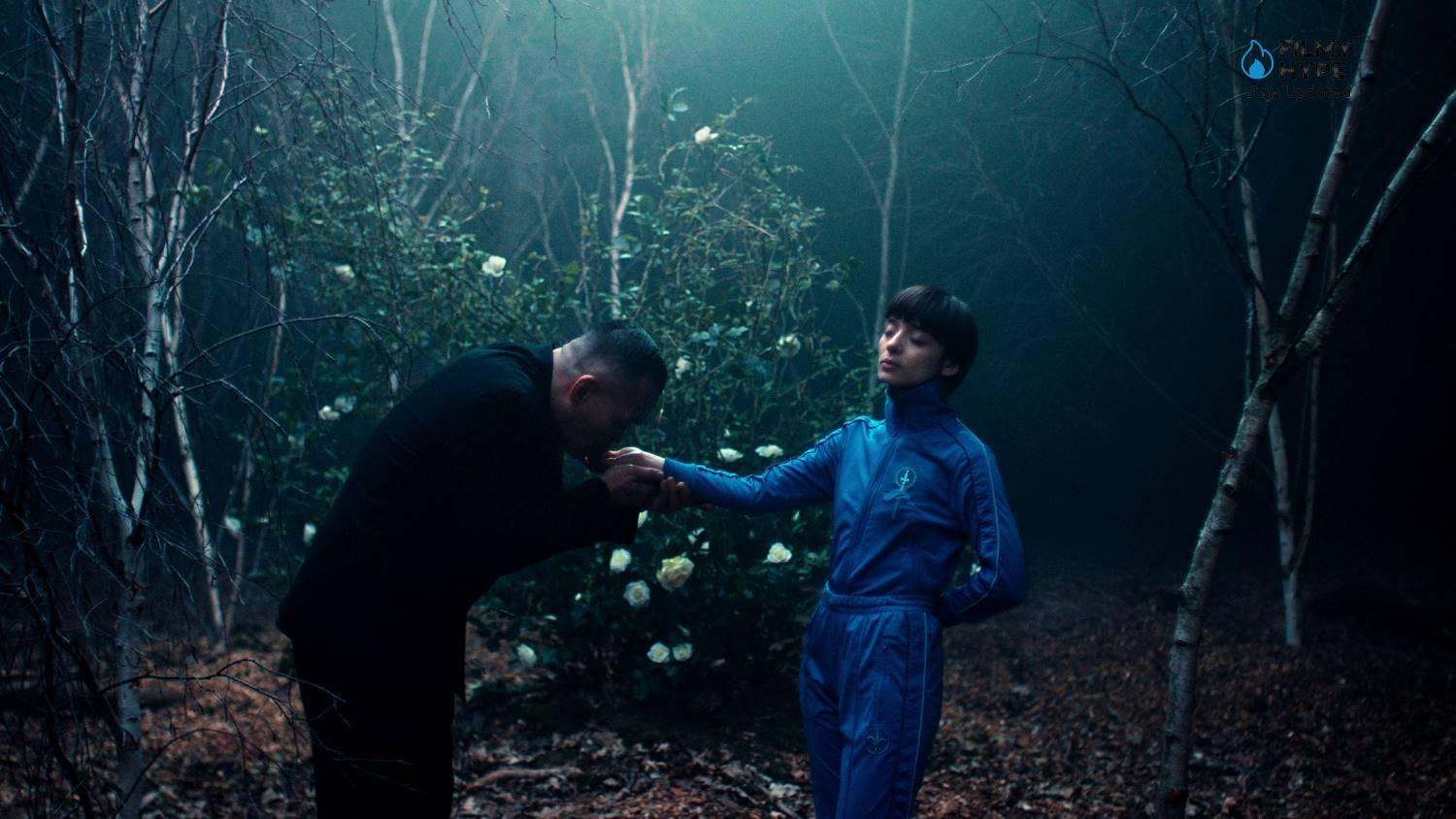
More than a girl like any other, Miu is considered by all to be an authentic supernatural talisman, capable of bringing good luck and even propitiating miracles in favor of all those around her. These extraordinary qualities, however, have transformed her from her earliest childhood into an object, a bargaining chip at the service of the highest bidder. It is in this capacity that the young woman arrives in the degraded slums of Copenhagen, where the elderly and superstitious sister of an Albanian crime boss dreams of conceiving a miraculous child. Miu soon finds herself trapped in an abyss of degradation and violence, where the girls are imprisoned as slaves, forced into prostitution and subjected to the abuses of the woman’s husband, a grotesque human being who expresses himself in grotesque pig noises.
Miu takes action and unleashes a violent revolt against her captors: it is the beginning of a bloody odyssey through the streets of the Danish capital, which after many vicissitudes will lead her to work alongside the criminal Danny to redeem the daughter of his new landlady from the grip of the fearsome Chinese boss Chieng. However, Miu’s exploits will lead her on a collision course with a perverse family of the ancient Danish aristocracy, whose sadistic scion, Nicklas, will end up colliding with the protagonist in a duel to the death. The showdown between the two will have unexpected consequences and will trigger a spiral of events destined to culminate in the supernatural awakening of the evil Rakel, a dark and destructive female force who embodies Miu’s perfect nemesis. Faced with a thousand threats and dangers, the young protagonist ends up turning into a real heroine and reawakening her latent power, which leads her to transcend the very boundaries of the earthly world.
Copenhagen Cowboy Review and Analysis
That Netflix had left full creative freedom to the creative and visionary flair of the author of The Neon Demon was widely known, but Copenhagen Cowboy still manages to go far beyond the boldest expectations. Over the course of the six episodes of the TV series, directed by Nicolas Winding Refn skilfully plays with images, photography, and the saturation of chromatic tones, giving life to an authentic neo-noir masterpiece in fluorescent hues, capable of being even more poetic and unprejudiced of his previous works. Through Refn’s camera, the slums of Copenhagen thus end up transforming themselves into a metaphysical and surreal non-place, which partially winks at the aesthetics of the cyberpunk trend.
However, it is not a question of pure form, or the simple construction of an atmosphere for its own sake: in Copenhagen Cowboy, the power of the image innervates and transfigures the narration, managing to sublimate a dark and violent story of crime and revenge and to transform it into a spiritual and esoteric journey beyond the confines of earthly reality. With his directorial choices, Refn manages to visually represent the alchemical transformation of the protagonist’s soul, which passes from lead to gold, or – to use the same metaphor of the series – from the stable of pigs that opens the story to the blaze of lights otherworldly of the final sequence. In this perspective, Refn is confirmed as the heir of the great Alejandro Jodorowsky, another brilliant “esoteric” director capable of expressing the ineffable through the pure image.

Even more than The Neon Demon and Too Old to Die, Young, Refn’s new series is in short an authentic sensory ecstasy, which guides us on a psychedelic and hallucinatory journey into the depths of the human soul. To complete Refn’s visual poetry, however, the suggestive soundtrack created by composer Cliff Martinez also contributes, which helps to hypnotize the viewer with an unprecedented mix of electronic music and ethereal tones. The riskiest bet, for Copenhagen Cowboy, consisted in choosing to rely on a cast almost entirely of Danish nationality and completely unknown to the general public, called upon to collect the heavy baton of the many Hollywood stars with whom Refn had worked in his latest works, such as Ryan Gosling, Miles Teller, Elle Fanning, Keanu Reeves and Mads Mikkelsen.
The heaviest task undoubtedly rested on the slender shoulders of Angela Bundalovic, called upon to take on the uncomfortable role of an avenging heroine with a monochromatic jumpsuit that can’t help but evoke the famous Bride from Tarantino’s Kill Bill on a visual level. Yet, against all odds, Miu immediately proves to be a convincing and memorable character, with an interpreter surprisingly at ease in the role of Refne’s angel of death. Surprisingly, Angela Bundalovic comes out the winner of every comparison, giving us a genuine and convincing acting performance, which perfectly condenses all the imagination of the Danish author, from the pristine purity of the spotless girl to the radical inflexibility of the avenging ronin.
Equally iconic are the performances of Andreas Lykke Jørgensen, interpreter of the perverse and vampiric antagonist Nicklas, and Lola Corfixen, daughter of Nicolas Winding Refn, in her acting debut in the role of the evil antagonist Rakel. More generally, the entire cast manages to create a gallery of surprising and unforgettable characters, who immediately leave their mark on the viewer thanks also to a solid and incisive screenplay. Among the supporting actors, the honorable mention certainly goes to the excellent Zlatko Buric, who returns to collaborate with Refn after playing the role of criminal boss Miro in the Pusher trilogy: on the character he played in Copenhagen Cowboy, however, we cannot yet to reveal anything to you…
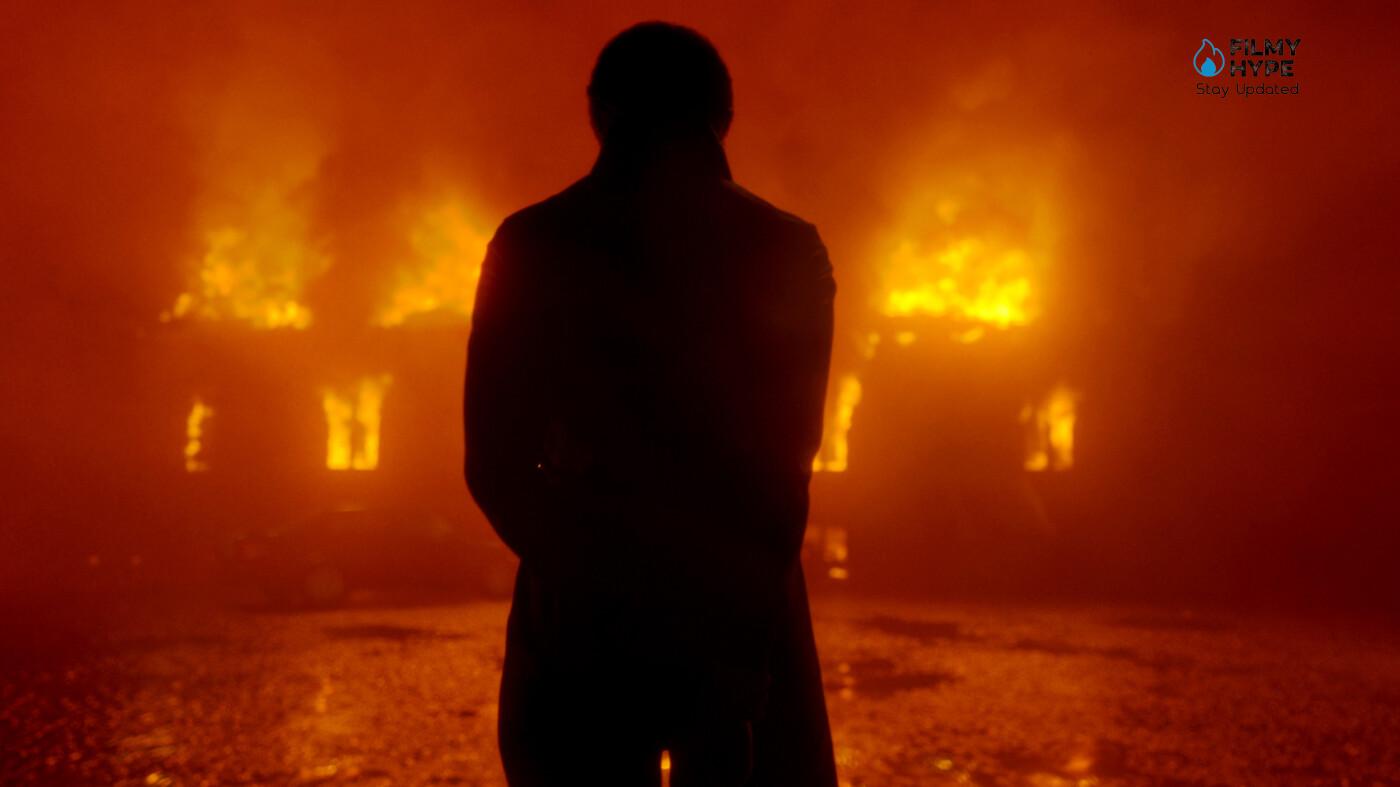
Moving beyond their superb aesthetic framework, Miu’s adventures re-propose numerous themes particularly dear to Refn’s artistic and narrative production, recombining them in a completely new guise. With Copenhagen Cowboy, the author looks back at the many symbols and themes that have crowded his fervent cinematic imagination over the past few years, and recombines them into a single design, with the explicit intention of giving life to a real mythology Contemporary. The one outlined during the six episodes of the series is an authentic forest of symbols and archetypes, which variously draw on the cultural heritage of the classical, oriental, and Judeo-Christian traditions to give life to a story that manages to be both original, innovative and profoundly familiar.
As in a deck of tarot cards, all the symbols dear to Refn’s poetics appear in the series: there is the immaculate maiden, who holds within herself the seed of a purity and candor of divine origin, there is the avenging angel of ‘Old Testament, which administers an implacable and bloody justice, there is a young man morbidly attracted to the mother figure due to the Oedipus complex, there are the demonic jailers, who brutalize and oppress the beauty keeping her imprisoned in an abyss of earthly degradation, and there is also the showdown – already seen at the end of Too Old to Die, Young – between the two opposing faces of the sacred feminine, i.e. the goddess of Darkness and the champion of Light, mythologically embodied by Eve and Lilith, but also Artemis and Hecate.
In short, although it is a dark and realistic thriller set in the criminal undergrowth of contemporary Copenhagen, Refn’s series is also much more and manages to transform itself into an authentic contemporary myth, which can be declined both in the form of a film unitary in several acts, as well as in the guise of a miniseries. The impact of the first episode is strong and traumatic: Copenhagen Cowboy begins by immediately plunging us into a gloomy and degraded world, where brutality is the order of the day, and women are commodified and sold at auction. Everything is dirty, grotesque, and repulsive, and corruption almost seems to take on physical form: its most evident symbol is represented by the surreal figure of Sven, the fat and taciturn husband of Miu’s elderly mistress, who expresses himself only through pig verses. Inert and submissive to the blind cruelty of his wife and brother-in-law, the man vents his frustrations on the poor prisoners of the brothel, in an endless cycle of violence and oppression.
With the continuation of the narrative, however, the scenario changes drastically: soon, Miu will put an end to that infernal kingdom with a purifying fire and will move to the estate of a Chinese woman, whose daughter has been taken prisoner by the fearsome and austere boss mobster Chieng. The narrative universe expands, new factions and new characters make their appearance, and Miu’s crusade turns into a journey in search of redemption and atonement, at the end of which she will finally be able to return her captive daughter to her landlady and, by doing so, repay the moral debt of his hospitality. In short, from the circle of hell governed by the demonic Albanian clan, the story moves into a sort of real nocturnal purgatory, where Miu wanders and runs tirelessly in an attempt to achieve redemption and peace. As already mentioned, the landscape also changes shape together with the story: the gloomy degraded interiors of the first episodes are now replaced by the semi-deserted streets of a spectral city, boundless and illuminated by cold artificial lights.
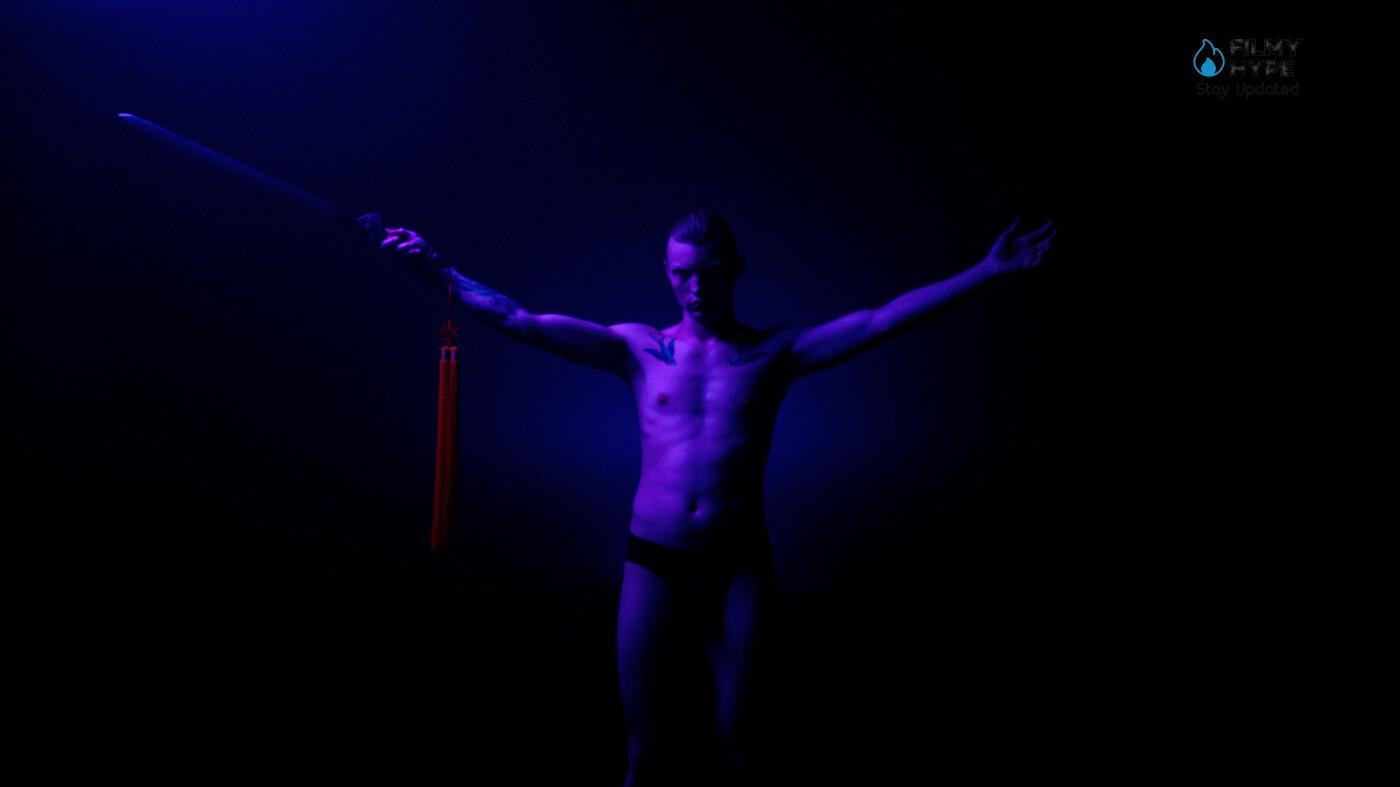
Finally, in the last act, the protagonist transcends the limits of reality, and lands beyond the boundaries of the physical world: after an apotheosis under the sign of neon lights, Miu finds herself in uncontaminated nature, free from the sinister shadows of the Copenhagen buildings, and ends up taking the lead of a group of women identical to her: fierce, indomitable and proud. An all-female paradise, in which the apocalyptic showdown with another primordial force will take place, embodied by the glacial and seductive Rakel.
Ultimately, Miu’s journey, in addition to almost literally tracing the various stages and archetypes of the journey of the mythological hero described by Joseph Campbell, also seems to wink at Dante’s, as the progressive change in the register also seems to confirm narrative, gradually moving from the grotesque to the sublime. Refn, moreover, is certainly not new to Dante’s allusions, on which the entire narration of The Neon Demon was already based, deeply hinged on the allegory of the three fairs. From many points of view, the Copenhagen Cowboy series does nothing but take up and give full development to this suggestion, albeit always through the phantasmagorical and fluorescent lenses of the neo-noir genre.
Copenhagen Cowboy Review: The Last Words
Halfway between film and TV series, Copenhagen Cowboy marks a high point in Nicolas Winding Refn’s neo-noir imagery and proves capable of combining his radical and visionary aesthetics with the construction of an authentic modern mythological epic. Over the course of its six episodes, the series manages to revisit the entire poetics of the Danish director in an innovative key, proposing a dark story of crime and violence that flows into the mystical and the supernatural. With Copenhagen Cowboy Refn reminds viewers that there are few directors so good at manipulating tension and twisting it in an instant: thus Miu’s secret is revealed, demonstrating that the poetry of cinema lies in silence and immobility, not in acceleration unbridled and the continuous search for words and meanings.





